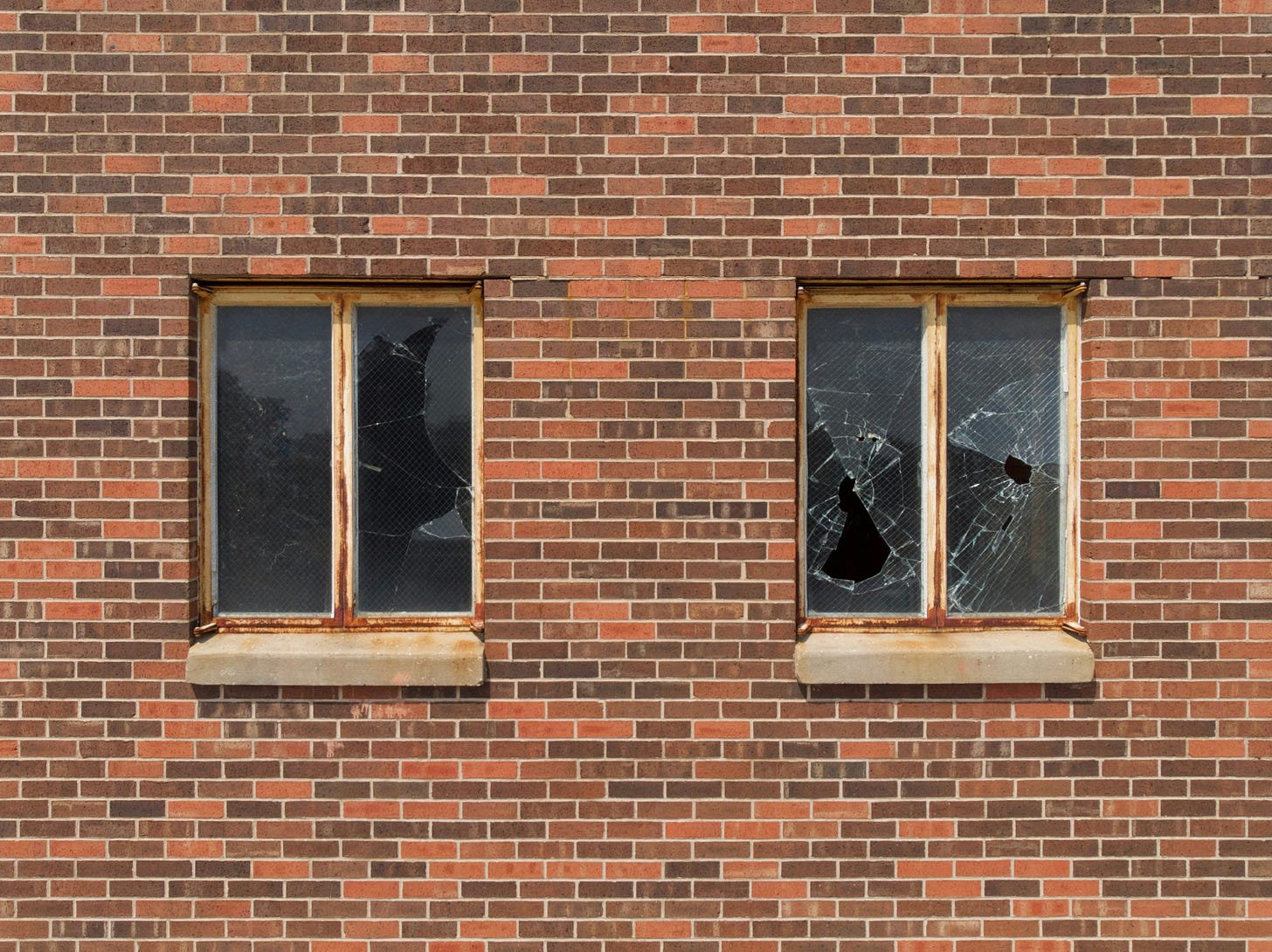The theory of Broken Windows argues that visible signs of minor crime and/or disorder increases the likelihood of further crime in urban areas, including more serious offenses. According to the theory, something like a broken window or a graffiti signals to potential criminals that the area is not monitored, hence offenses might go undetected/unpunished. On the other hand, an orderly neighbourhood signals that “crime is not tolerated here”, which deters potential offenders.

While this theory was implemented in a few cities (notably New York in the 90s) and seemed to lead to lower crime rates, its validity and ethical implications were challenged by other social scientists (and not only).
Now, we’re not here to debate this theory per se. (although an interesting topic!)
Rather, in the spirit of metaphors, I argue that the theory translates pretty well to the small world of an individual. In the same way that the theory implies that the landscape “communicates” to people, your drawer, your bed, your fridge, they all “communicate” to you. And of course, it is not just the physical spaces, it is your phone’s organisation (or lack thereof), your habits, your shared emotional space in your relationships and so on and so forth.
In other words, feedback loops are all around you!! (hi, James Clear)
So, in preparation for this article, I decided to fix one big broken window in my digital life. It was the embarrassingly high number of open tabs on my phone browser. In the past 2 years, 7 tabs transformed into tens, tens into hundreds, then it became a black hole for all the interesting things I bumped into and never checked back.
In alignment with this theory, opening a new tab on my phone was communicating clutter, disorder and a general sense of hopelessness for all the things I want to read and don’t make time for.
So over the course of a week, I started triaging all these tabs and capturing the still relevant ones into a read-it-later app. Now I’m dealing with another black hole of interesting things, but at least it is a well organised black hole. Moreover, I configured my browser to close tabs if they are older than one week, so I make sure I don’t think of opening a tab as a way of capturing information. Let’s see how it goes but I feel pretty optimistic after 2 weeks of having ‘fixed this window’.
What about you? Do you have a corner in your life, be it an actual corner or an abstract one (think in the broadest sense, like a friendship you want to rekindle or a habit you want to resume), that is in an increasing state of deterioration? If yes, here’s a challenge for you: tackle that corner and fix that broken window. And if you would like to share with us in the comments your restoration anecdote, I’d be very happy to read it!




Which read-it-later app did you go for?
This weekend I started migrating the repository of articles (in their various states: not read/read/annotated) from Notion to Readwise Reader.
It was a broken window that had been bugging me for a long time. Even though capturing content inside the Notion database was easy from all devices, the reading experience was sub-par on the mobile app. In effect, hundreds of articles were stored, tagged & sorted, but rarely read.
Excellent insights, Isabela!
I think the broken window concept might generally be related to inertia.
And since inertia is one of the strongest laws of physics, I think it's one of the strongest forces in our lives, as well.